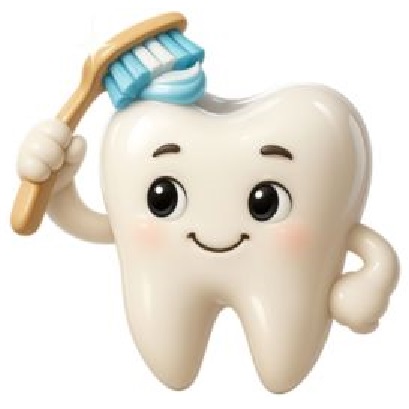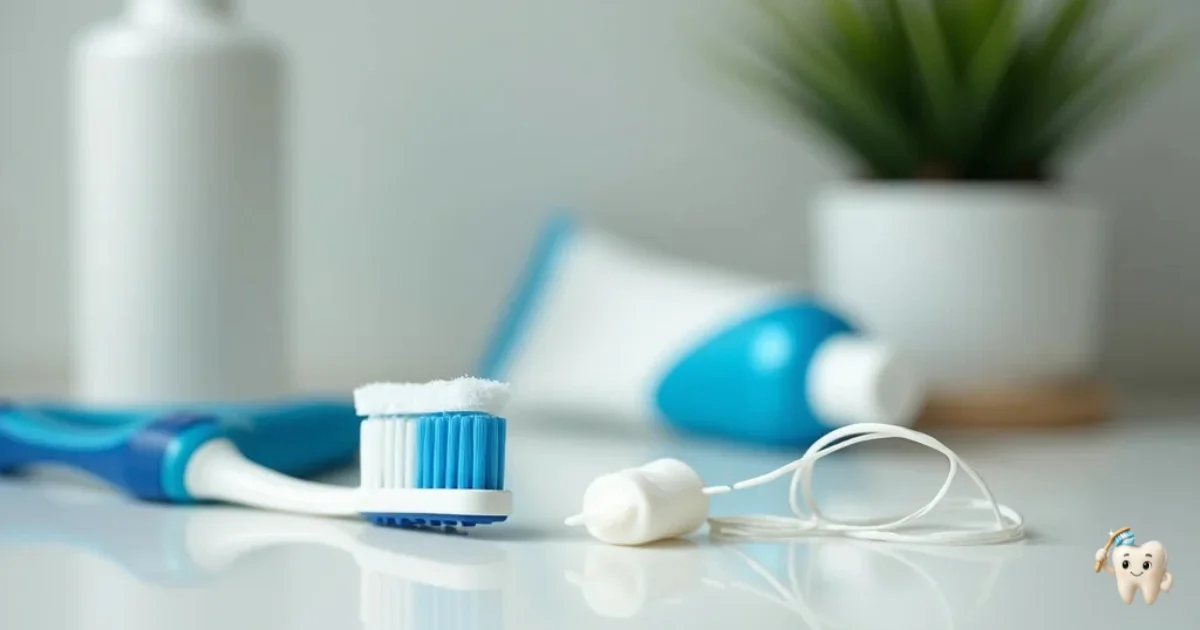Hi, Craig here, Dental hygiene can seem like a basic routine, but it’s actually a big deal for staying healthy and confident. Often, folks only think about brushing and flossing when their dentist appointment is around the corner, but caring for your teeth and gums every day can really pay off for your mouth and even your whole body. In this article, I’ll walk you through the importance of dental hygiene, the basics everyone should know, some common challenges, and a few smart tips that make caring for your smile a lot easier.
The Big Picture: Why Dental Hygiene Matters
Caring for your teeth isn’t just about having fresh breath or a bright smile. A healthy mouth helps you eat, talk, and feel good about yourself. Gum disease, tooth decay, and cavities can be uncomfortable, and untreated issues sometimes lead to pain or bigger problems, like tooth loss.
Looking after your teeth is also connected to your overall health. Gum infections can sometimes sneak into the bloodstream, potentially affecting your heart and other parts of your body. According to the CDC, gum disease is linked to heart disease, diabetes, and even complications during pregnancy. So, brushing and flossing go way beyond just keeping your teeth pretty; they help keep your body happier too. The CDC shares more on this link if you want real facts straight from public health experts.
Dental Hygiene Basics Everyone Should Know
Good dental hygiene comes down to a few basic things. Here’s what I always focus on and recommend to anyone:
- Brushing: Use a softbristled toothbrush and fluoride toothpaste to gently brush at least twice a day. Two minutes does the trick—think about playing your favorite song while brushing to time yourself.
- Flossing: Flossing once a day helps get food and gunk out from between teeth where your brush can’t reach.
- Mouthwash: Swishing mouthwash around helps knock out bacteria and keeps your breath fresh.
- Regular Dentist Visits: Even if your teeth seem fine, professional cleanings and exams can spot any trouble early on.
Picking the right toothpaste, looking for fluoride and the ADA Seal of Acceptance, and changing your toothbrush every few months (or sooner if the bristles look worn) keeps things working properly. If you’re using electric toothbrushes or water flossers, those can help a lot, especially for people with braces or sensitive gums.
Simple Guide to Building a Strong Dental Hygiene Routine
Sticking to a daily dental hygiene routine can feel tough, especially if you’re really busy or just not a fan of flossing. Check out a process I’ve found helpful for setting up good habits:
- Start with a Schedule: Morning and before bed work best for most people. If you set a specific time, it becomes second nature.
- Don’t Rush: Give yourself the full two minutes for brushing and at least a minute for flossing. Slow and steady works better than a quick rush.
- Choose the Right Tools: There are tons of toothbrushes, floss types, and rinses out there. Find what’s comfortable—sometimes waxed floss slides easier, or you might like a smaller brush head.
- Track Your Progress: Some people mark off days on a calendar, use a phone reminder, or even pick up an app that helps keep them on track.
- Stay Motivated: Celebrate when you stick to your routine. Clean teeth feel great, and noticing improvements (less sensitivity, fresher breath) is encouraging!
This approach makes keeping up with your teeth less of a chore and more of a regular part of your day. Another idea is to create a habit loop by attaching your dental care to something else you already do every day, like your morning coffee or nightly skincare routine. Making dental care a comfortable ritual, not just a rushed add-on, can be key to sticking with it in the long run.
Challenges People Face With Dental Hygiene
No matter how much you want to keep your teeth in good shape, it’s pretty common to hit a few bumps along the way. These are issues I hear about most, along with a few suggestions that make things easier:
- Tooth Sensitivity: If hot or cold foods set your teeth off, using a toothpaste designed for sensitive teeth can help. Your dentist might also have special treatments.
- Bleeding Gums: Seeing blood can be scary, but it’s often a sign your gums need some TLC. Don’t skip brushing or flossing—gentle cleaning can actually help gums heal over time. If bleeding sticks around or gets worse, time to see your dentist.
- Bad Breath: Brushing your tongue along with your teeth and using mouthwash can help knock out odour causing bacteria.
- Busy Schedules: If days get away from you, stash a small toothbrush and toothpaste at work or in your bag. Quick lunchtime brushes can make a difference, and you’ll probably feel fresher, too.
Tooth Sensitivity
Sensitive teeth often make people skip brushing properly, which can make things worse in the long run. I’ve found that starting with a special toothpaste for sensitive teeth and using a soft brush can make brushing way more comfortable. Drinking water after something sweet or acidic helps too. For severe sensitivity, there are also in-office dental treatments that quickly block pain signals and shield your teeth. If sensitivity lingers for more than a couple of weeks, definitely check in with your dentist to make sure there’s not a bigger concern hiding beneath the surface.
Bleeding Gums
When gums bleed, folks sometimes think they’re brushing too hard and stop caring for their mouths, but often this is a sign of gum inflammation that needs gentle but consistent brushing and flossing. If it continues, ask your dentist or hygienist what’s up; they can give practical advice for your situation. Sometimes, bleeding can be the first sign of gingivitis, which is reversible in its early stage with good daily care.
Bad Breath
Bad breath isn’t just about what you eat—it’s often bacteria collecting on your tongue or between your teeth. Daily cleaning and staying hydrated usually helps. If breath issues stick around, getting checked for gum disease or dry mouth conditions is smart. Using a tongue scraper can also give a boost to your routine if you struggle with chronic bad breath. If dry mouth is the cause, sipping water frequently and chewing sugar free gum can be helpful tricks.
Busy Schedules
With work, school, or travel, dental care can get sidelined. Carrying travelsize supplies like floss picks means you’re always ready for a quick clean even on the busiest days. You can even keep a spare toothbrush and paste in your car or lunch bag for those “just in case” moments when you have a spare minute to freshen up after meals.
Most dental hygiene obstacles get easier with a little problem-solving and good advice from your dentist or hygienist. The main thing is not to give up. Your mouth will thank you!
Smart Tips to Boost Your Dental Hygiene Game
Keeping your smile in good shape doesn’t have to be complicated, but a few smart tricks can help you do even better at home:
Chew Sugar Free Gum: Popping in a piece after meals (especially when brushing isn’t possible) helps boost saliva, which can wash away little bits of food and acid.
Eat ToothFriendly Snacks: Crunchy fruits and veggies (like apples or carrots) can gently clean your teeth while you eat. Dairy products like cheese can help lower acid, which is also good for your enamel.
Swap Out Sugary Drinks: Water is your best friend for your mouth. Cut down on soda and sports drinks, or drink them with a meal to limit contact with your teeth.
Know When to Ask For Help: Don’t hesitate to chat with a dental professional if you have tooth pain, sensitivity, or are struggling with your daily routine. They have ideas and solutions you might not have thought of yet. Ask about sealants, fluoride rinses, or even nutritional changes that could step up your mouth health if you keep running into trouble.
Trying out these tips gives you more ways to avoid cavities and gum issues, even when life gets busy. Remember, the little choices you make every day can really add up for your dental health.
The Most Useful Tools for Dental Hygiene
Having the right dental products can really upgrade how well you’re caring for your teeth. Here are items I find super useful for almost anyone:
- Electric Toothbrush: These can be easier to use and often give a more thorough clean. Most pulse to tell you when two minutes are up, which takes the guesswork out of brushing time.
- Floss Picks or Water Flossers: If string floss isn’t your favorite, these alternatives can be faster and easier, especially on the go.
- Fluoride Mouthwash: Adds an extra shield for your enamel and can keep your breath fresh a little longer than brushing alone.
- Interdental Brushes: Great for getting between brackets, bridges, or just tight spaces, especially handy if you have orthodontic work.
If you’re curious about product choices or want to mix things up, the American Dental Association reviews products here so you can see what meets their standards before trying something new. If you have trouble holding a regular toothbrush, there are also large-handled grip options and battery-powered models designed for seniors or people with arthritis.
- Healthy Gums: Consistent care keeps gums pink and comfortable; no soreness or bleeding.
- Bright, Clean Teeth: Brushing and flossing regularly keeps stains and cavities away, so your teeth look and feel good.
- Fresh Breath: Daily care handles odor and gives a boost to your confidence when meeting new people or chatting with friends.
Frequently Asked Questions
I get a lot of questions about caring for teeth, so here are a few of the most common:
Question: Does everyone really need to floss?
Answer: Yes, flossing cleans where toothbrushes can’t reach, helping to prevent gum disease and cavities between teeth.
Question: How often should I see my dentist?
Answer: Most people benefit from seeing a dentist every six months. Some folks with more ongoing issues might need more frequent visits.
Question: What if I’m scared of the dentist?
Answer: Tell your dentist and the staff how you feel. They understand dental anxiety and have ways to help make your visit more comfortable. Don’t be shy about asking for breaks or explaining your worries. Some clinics even offer relaxation options or gentle music to help you stay calm during your checkup.
Final Thoughts
Putting a little time and care into dental hygiene pays off for both your smile and your overall health. Clear routines, the right tools, and some friendly advice can turn this everyday task into something that helps you stay healthy and happy for years. Enjoy the confidence that comes with a clean, healthy mouth! Keep smiling and keep brushing—it’s a simple way to take charge of your well-being every day.
Please do not overlook the importance of dental hygiene

